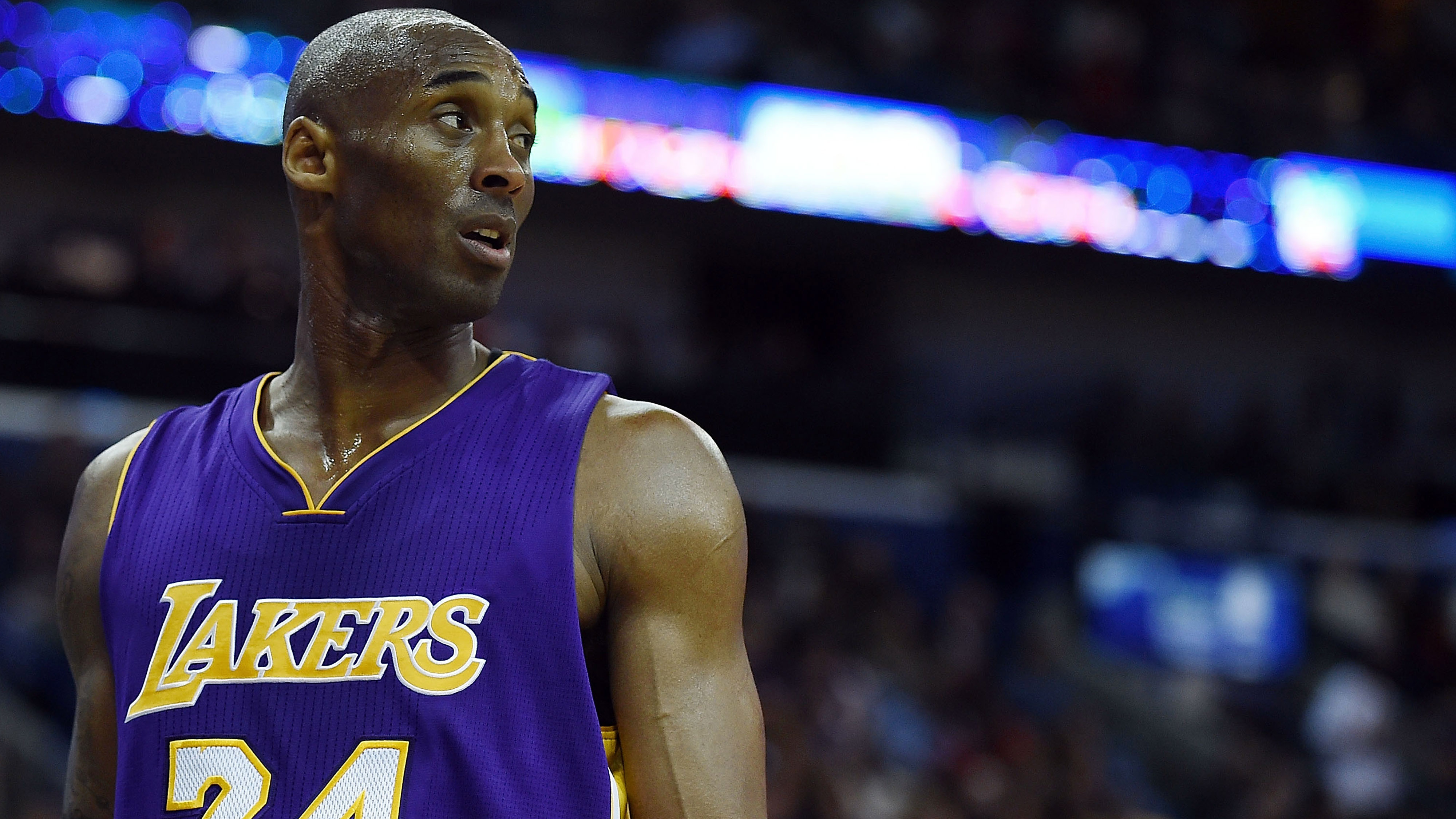Kobe Bryant—the Los Angeles Lakers’ all-time leader in points, games, minutes, field-goals, three-pointers, free-throws, and steals—announced yesterday that he will retire at the end of the 2015–2016 season. The decision was delivered via a poem posted on The Players’ Tribune, which crashed the site for nearly an hour.
Bryant is currently playing through the last season of his latest Lakers contract—a contract that has earned him the NBA record for most seasons with a single team—and has suffered season-ending injuries in each of the last three seasons (though those seasons were not without his traditional form of heroics). As part of a Lakers team in the midst of a rebuilding year, Bryant has been struggling with the worst stretch of his career, shooting thirty percent in the field through the first sixteen games.
Bryant’s announcement shut down the sports world by marking the end of an era (#dominateannouncements) and forced bashful journalists who spent the first month of the season questioning Kobe’s ability to play to reap what they had sown. For his part, Kevin Durant did not appreciate the role that the media has played to this point.
Los Angeles in particular is faced with the reality of a world without the Mamba, who has been the city’s biggest sports icon since his first appearance as Frobe on All That in 1998 (being largely responsible for five of the Lakers’ sixteen NBA championship banners probably also helped his star). The Lakers acquired Bryant through a convoluted series of pre-draft transactions with the Charlotte Hornets in 1996, sending Vlade Divac and an endless pool of tears to Charlotte for the then-seventeen-year-old phenom. Jerry West, the Lakers manager responsible for the move, is still laughing maniacally somewhere (whereas Divac is likely still mumbling about lucky shots—or hitting them—out in Sacramento, where he’s now the general manager of the Kings). Since that time, Bryant has been elected to seventeen All-Star teams, won two scoring titles, one MVP award (though he was robbed of several more), and one awesome dunk contest, in addition to featuring on two gold-medal-winning Olympic teams and scoring eighty-one freakin’ points in a regulation, twenty-first century NBA game.
Bryant himself has emphasized that he is looking forward to what the future will hold—whether that be a future in commentating, running a poetry slam, or coaching (a role that the Lakers desperately need to re-fill, plus Kobe looks pretty damn sharp in a suit). The rest of this season, however, will now be dedicated to the farewell tour, which will hopefully be a lot less insufferable than Derek Jeter’s Re2pect campaign and a lot more permanent than the “retirements” of Brett Favre or Michael Jordan.
Bryant, who is only outmatched in worldliness and post-game intelligence by his former teammate Pau Gasol, divulged a number of revealing insights in his media interview last night, where he explained his reasoning for retirement and his mindset of acceptance:
I see the beauty in not being able to blow past defenders anymore, you know what I mean? I see the beauty in getting up in the morning and being in pain, because I know all the hard work that it took to get to this point. So, I’m not sad about it. I’m very appreciative of what I’ve had.
You can attempt to #dominateemotions and watch the whole interview below.









